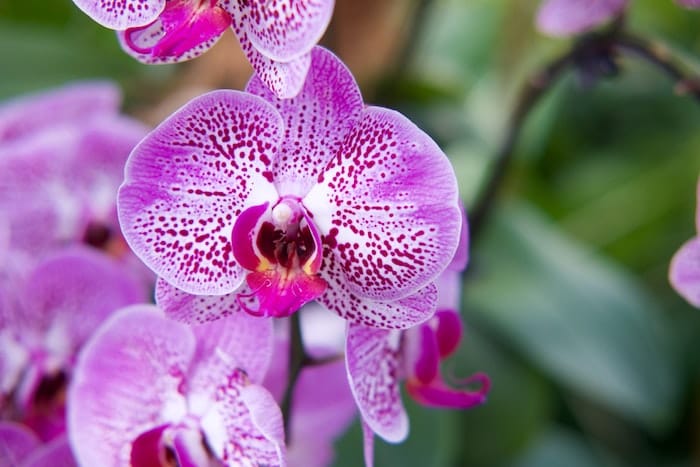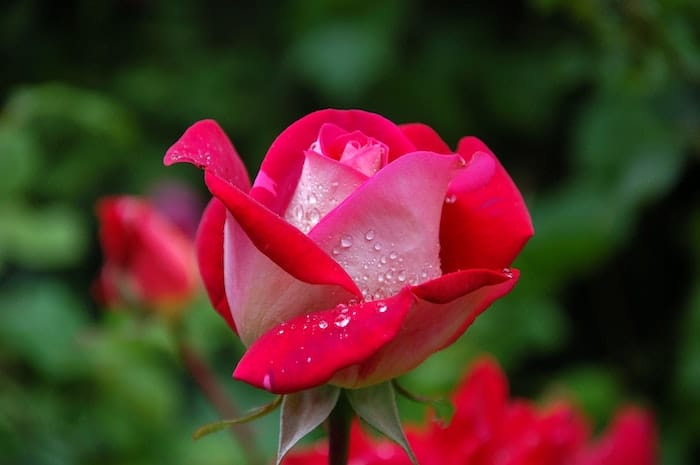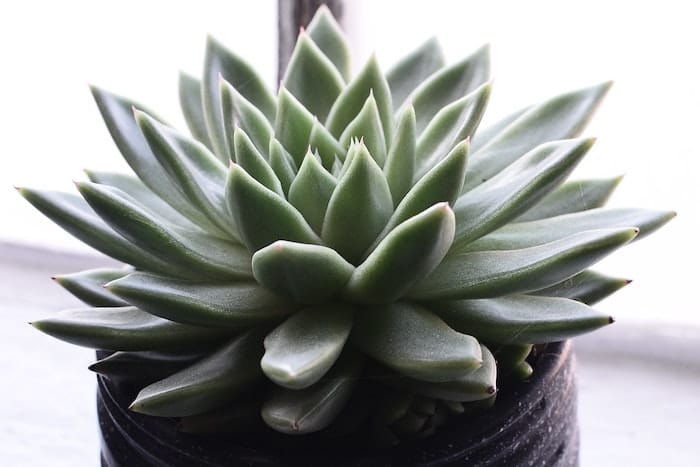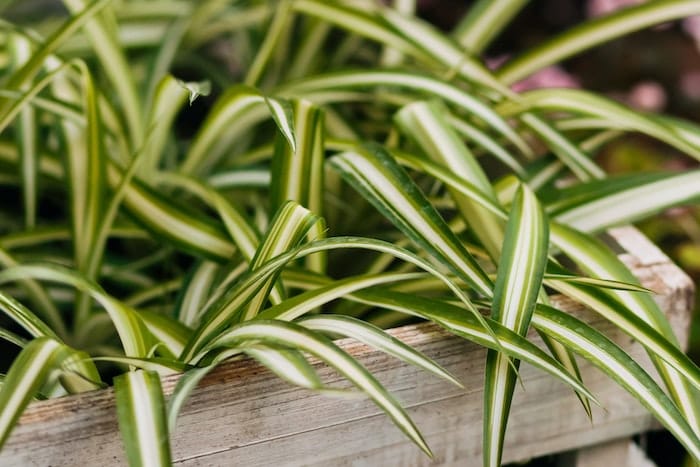You might be tempted to add beautiful new plants to your home collection, but it is important to be aware that many of them can be dangerous for our cats. Ingestion, or even accidental contact, can cause symptoms ranging from bloating to severe liver damage and even lethal poisoning. Our cats are in danger when we choose plants without first checking that they are safe. Keep in mind that any plant, even one that’s considered to be safe, has the potential to cause an upset stomach, especially when consumed in large amounts. So, how can you avoid toxic plants when you have cats at home?
7 Popular Cat-safe Houseplants
Here are seven houseplants you can bring into your home that are safe for your cat:
Orchids
Although orchids are very picky plants and can be demanding when it comes to caring for them, they are one of the most beautiful plants you can grow in a pot. Orchids are generally safe for your cat, however, in rare cases, a cat may develop an upset stomach or skin rash after exposure or ingestion. Keep in mind that orchids can grow quite tall. Ideally, orchids should be placed out of reach of your cats, as they are likely to tip over the plant and kill it.
Roses
Roses are among the most popular flowers given as a gift and are also a common choice to grow indoors in a pot. The wide variety available on the market makes it extremely appealing if you are looking to add a splash of bright color to your room. You should still keep in mind that there are types of plants that might look similar to roses, but can be toxic and dangerous to your furry friend. So always double-check before purchasing your new houseplant.
Basil
If you are considering a pet-friendly plant that will be more than just pretty to look at, basil can be a wonderful choice. Not only does basil smell great and is a great addition to many dishes, but it is also perfectly safe for your cat.
Echeveria, commonly known as Mexican snowball
Just like other succulents, such as the zebra plant, echeveria is becoming a more popular choice for houseplants. The modern-looking plant will be easy to take care of and is sure to not harm your cat, even if they come into close contact with it.
Aspidistra, commonly known as cast iron plant
If your life is very busy and you don’t have much time to invest in caring for your houseplants, aspidistra, commonly known as cast iron plant, is a great choice for you. It can thrive in shade and doesn’t require much attention. Not only is aspidistra safe and non-toxic to your cats, but also to other animals and small children.
Spider plant
Spider plants are not the most unique-looking plants, however, they are very low maintenance and a great choice if you’ve never had a houseplant before. They require very little effort and still add to the greenery of your room. They are not harmful even if your cat bites some of the leaves. If you have a particularly curious (or naughty!) cat, this is a good option.
Christmas cactus
The Christmas cactus is loved for bringing a splash of bright color into our lives around the holidays. Not only will it brighten your room, but it is also relatively easy to take care of. Ideally, you should still try to place it out of your cat’s reach. It is not poisonous to your cat, but if it is not stable the planting pot can easily be knocked over.
What To Do if Your Cat Has Been in Contact With a Toxic Houseplant
Coming into contact with toxic plants can be extremely dangerous and even deadly to your cat. Keep in mind that many lists for both safe and toxic plants are not all-inclusive, so it can be difficult to get accurate information about a plant. Sometimes a plant hasn’t been correctly identified or there’s confusion about common vs. scientific names, and that can complicate things. If you suspect your cat has ingested or been in contact with an unsafe plant, you should immediately contact an online vet. If you witness your cat ingesting a plant and you are unsure if it is safe or not, save the remnants of the plant. Don’t wait until your cat is experiencing symptoms before contacting an online vet or poison control. Vetster is available 24/7 and will instruct you to emergency care in case of an urgent situation.
Related Reading




